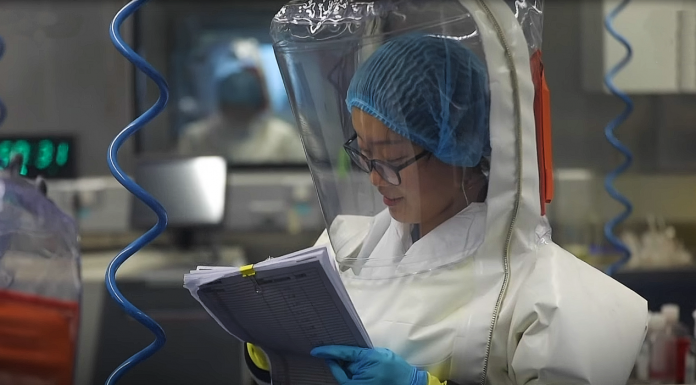(Ken Silva, Headline USA) The Government Accountability Office released a scathing report Wednesday about the Department of Health and Human Services’ shoddy handling of gain-of-function research, finding that HHS “does not fully meet the key elements of effective oversight.”
Gain-of-function research entails scientists developing more dangerous versions of diseases in order to study them. The practice has been criticized by some public officials and scientists, who have called for congressional investigations into whether gain-of-function research spurred the Covid-19 pandemic.
The GAO’s report comes as the House Select Subcommittee on the Coronavirus Pandemic is set to investigate the origins of Covid 19—a probe that will include looking at the federal government’s funding of gain-of-function research.
The GAO, a federal agency designed to provide Congress with non-partisan research, noted in its report that the U.S. government paused funding for gain-of-function research in 2014. At the same time, the U.S. government embarked on a process to re-evaluate the risks and benefits of gain-of-function research and to develop policies to govern the funding and oversight of such research.
HHS established such oversight procedures in 2017. New rules included a requirement for the HHS to conduct a departmental review if proposed research is “reasonably anticipated to create, transfer or use enhanced potential pandemic pathogens.”
However, the GAO noted that the HHS did not articulate a standard for what “reasonably anticipated” means.
“Until HHS develops and documents such a standard, the Framework allows for subjective and potentially inconsistent interpretations of the requirement—leaving HHS without assurance the department is reviewing all necessary research proposals,” the GAO stated.
The GAO also criticized the HHS for its lack of transparency about its oversight process. There is no public information about who is involved in the oversight of gain-of-function research, according to the GAO.
The HHS told GAO researchers that they keep the identities of those involved in oversight confidential for safety reasons.
“For example, HHS officials told us that agency staff have faced threats to their personal safety related to their perceived involvement in gain-of-function research. Given the heightened concern about the risks posed by this type of research, and the safety of scientists, officials told us that there is a need to balance protection of personal vulnerabilities and transparency,” the GAO report said.
The GAO report acknowledged the HHS’s concern about identifying its personnel involved in gain-of-function oversight, but urged the health department to share non-sensitive information such as the composition and expertise of those involved in the oversight process.
“By working with funding agencies to identify and share non-sensitive information about the composition of the review group—such as the qualifications or expertise of those who are involved in the review process—researchers, Congress and the public would have greater assurance that individuals with the appropriate expertise are conducting reviews of research involving enhanced potential pandemic pathogens,” the GAO recommended.
In response to the report, HHS officials neither agreed nor disagreed with the GAO’s recommendations.
Melanie Anne Egorin, the HHS’s assistant secretary for legislation, told the GAO that the department “is committed to ensuring that it carefully reviews, considers, and incorporates guidance to increase transparency in the oversight of funding for research involving enhanced potential pandemic pathogens.”
Ken Silva is a staff writer at Headline USA. Follow him at twitter.com/jd_cashless.

